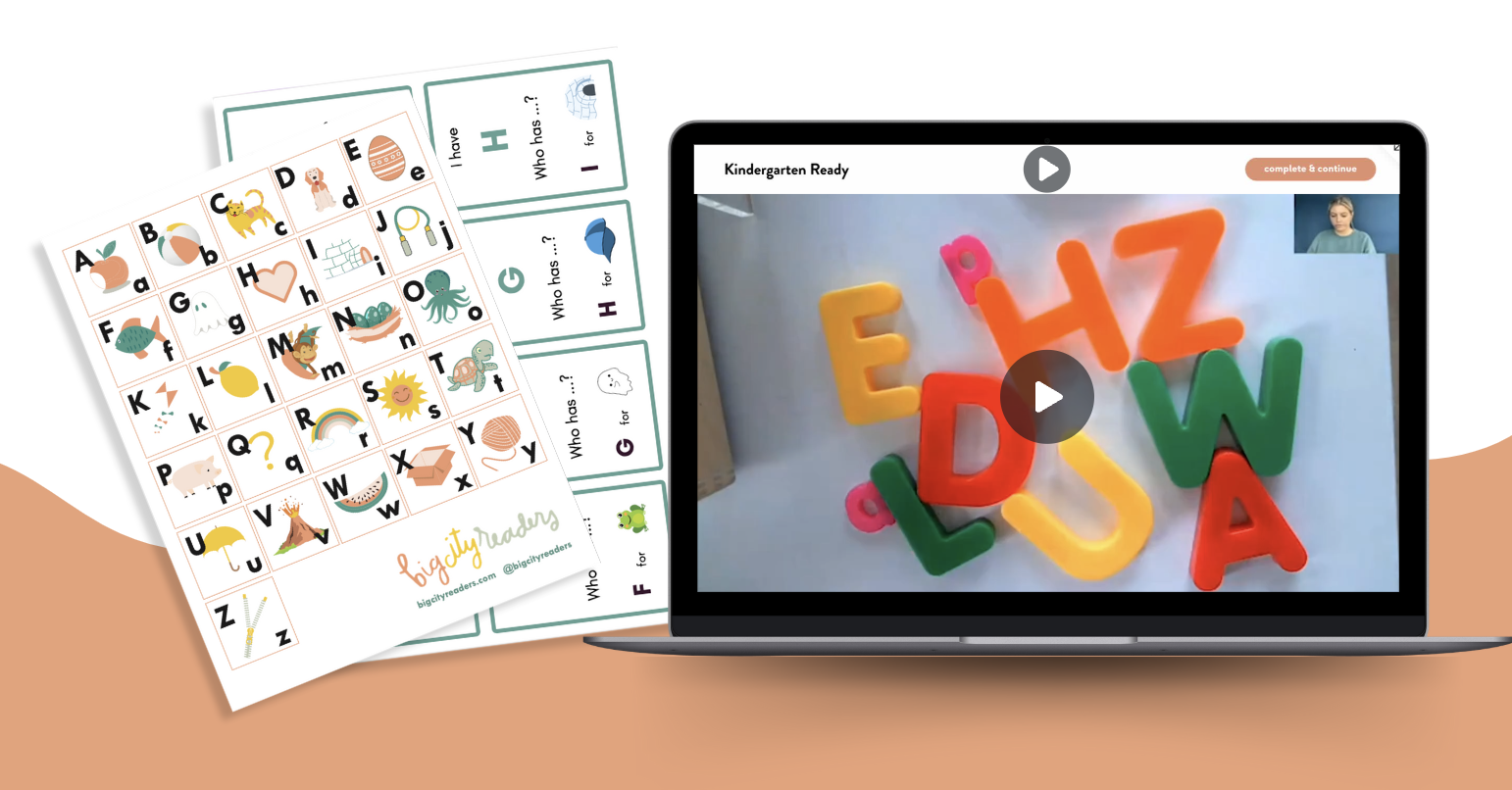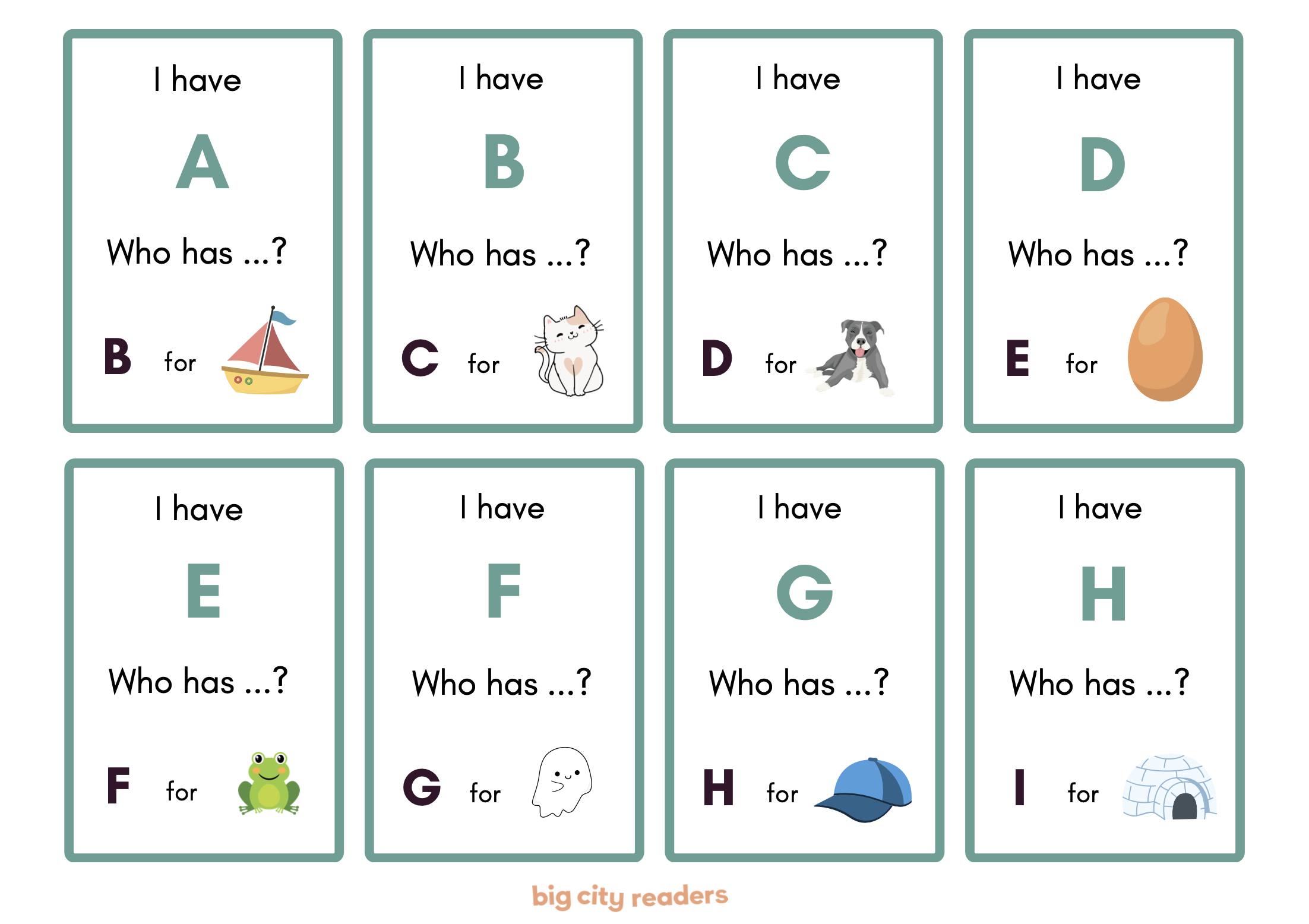Kindergarten Redshirting: To Repeat or Not Repeat Kindergarten?
Have you been wondering if your child might benefit from repeating kindergarten?
Maybe you’ve noticed they’re struggling with certain skills, or perhaps you’re worried they’re not quite ready for the challenges of first grade. Deciding whether your child should repeat kindergarten is a big decision, and it’s completely normal to feel unsure about what’s best. This choice isn’t just about academics—it’s about understanding your child’s unique needs and supporting their growth in all areas. The good news? With the right perspective, this can be an opportunity to set your child up for long-term success. I’m here to help you navigate this process with compassion and confidence.
Are you new here? Welcome! I’m Miss Beth, the founder of Big City Readers—a different kind of early childhood development. I believe children need flexibility, fun, and individualized approaches to thrive as learners. Not all kids learn by sitting at a desk, and it’s my mission to find creative solutions that meet them where they are. Through the 5 building blocks of early literacy—read, write, sing, talk, and play—I help families build strong foundations for learning. I also incorporate the Orton-Gillingham method, which uses visual, auditory, and kinesthetic pathways to make learning accessible for every child.
So let’s dive into everything you need to know about deciding whether repeating kindergarten is the right choice for your child. Together, we’ll explore the benefits, challenges, and how to support your little one no matter what you decide!
What Is Kindergarten Redshirting, and Why Do Parents Consider It?
Kindergarten redshirting is when parents decide to delay their child’s start in formal schooling by one year. This means their child isn’t among the youngest in their class, but instead has some extra time to grow before beginning kindergarten. For example, if your child has a late birthday or just seems a little less ready than their peers, you might wonder if giving them this extra year could help them feel more confident and prepared.
This practice has been around for decades but gained more attention after Malcolm Gladwell highlighted it in his book Outliers. He argues that older children often have an advantage in school because they’re more mature and confident than their younger peers. While this isn’t always the case, the idea resonates with many parents who want to give their kids every possible advantage.
Today, social media has amplified conversations about redshirting. It’s easy to feel like everyone is talking about it or even making it seem like a trend. But at its core, this decision isn’t about following what others are doing—it’s about understanding your child’s unique needs and deciding what will help them thrive.
Why Do Parents Think About Redshirting or Repeating Kindergarten?
Every child grows at their own pace, and sometimes parents notice areas where they might need a little more time to catch up. It’s not about comparing your child to others or worrying about milestones—it’s about tuning into what they need right now. Here are some common reasons parents consider giving their child an extra year, aka “redshirting”:
Emotional and Social Growth: Kindergarten is a big adjustment for the entire family! Some parents notice their kids need more time to build confidence, manage big feelings like frustration or nervousness, or learn how to interact with peers. If your child struggles with sharing, taking turns, or resolving conflicts, an extra year can give them valuable practice.
Academic Readiness: While academics shouldn’t be the main focus at this age, things like pre-reading skills or fine motor development (e.g., holding a pencil) can weigh on parents’ minds. If your child seems frustrated by these tasks, they might benefit from the idea of redshirting.
The Gift of Time: Many parents see this as an opportunity for their child to grow at their own pace without the pressure of keeping up with older classmates. It’s not about “falling behind”—it’s about giving them time to feel confident and capable.
The Benefits and Challenges of Repeating or Delaying Kindergarten
Why It Might Help
Repeating kindergarten—or delaying it in the first place—can have some real benefits for certain children:
It can boost confidence in areas like reading readiness or social interaction.
Your child gets more time to practice emotional regulation in a familiar environment.
Older children often feel more prepared to take on leadership roles in their class. For example, they might enjoy being the “helper” during group activities or mentoring younger classmates.
What To Consider
Of course, there are also challenges to think about:
Will your child feel “different” or singled out if they repeat? Some kids may notice they’re older than their peers and feel self-conscious.
Maturity doesn’t always follow a predictable timeline—every child develops uniquely. An extra year might not “solve” every challenge.
Practical factors like graduating high school later or entering the workforce later may come into play down the road. While this might not seem important now, it’s worth considering.
How to Decide If Your Child Is Ready to Move On or Needs More Time
Social and emotional readiness is one of the most important factors to consider when deciding if your child is ready to move on to first grade or might benefit from repeating kindergarten. Take a moment to reflect on how your child handles big feelings like frustration or nervousness. Emotional regulation is a key skill for success in school, and children who are still struggling significantly in this area may benefit from more time to practice. Another important question is how well they interact with peers. Do they take turns, share toys, and resolve conflicts effectively? These social skills are just as crucial as academic readiness at this stage of development.
Physical and age factors also play a role in this decision. If your child is among the youngest in their class, they may feel less confident socially and emotionally compared to older classmates. Sometimes, an extra year can help them feel more secure and self-assured. Additionally, consider their fine motor skills. Are they able to hold a pencil properly, use scissors safely, or trace shapes with ease? These physical abilities are foundational for many classroom activities, and struggling in these areas could make kindergarten or first grade more challenging.
Finally, don’t forget to think about your family’s unique situation. Every family has its own set of circumstances that can influence this decision. For example, does repeating kindergarten fit into your family’s schedule and finances? If you’re homeschooling, you may have the flexibility to adapt the curriculum to your child’s individual pace, which can make the decision less stressful. Ultimately, what works best for your family as a whole should be a significant part of the conversation.
How to Support Your Child No Matter What You Decide
Whether your child moves on to first grade or repeats kindergarten, your love and support will make all the difference. Here are some ways you can help them thrive no matter what path you choose:
If They’re Moving On To First Grade
If your child is moving on to first grade, the summer months can be a valuable time for growth and preparation. Incorporate fun learning activities into everyday life to keep their skills sharp and build excitement for the transition. For example, you can play reading games that involve matching letters or creating simple words, which will strengthen their literacy skills in an enjoyable way. Puzzles and building blocks are excellent tools for developing problem-solving abilities, while creative activities like drawing cards for family members can help them practice writing letters in a relaxed setting.
To ease the transition, encourage your child to feel excited about starting first grade by talking positively about making new friends and trying new things. If possible, visit their new classroom or school ahead of time to familiarize them with the environment. Additionally, role-playing situations such as meeting new classmates or asking their teacher for help can reduce any nervousness they might feel and give them the confidence they need to start the year strong.
If They’re Repeating Kindergarten
If your child is repeating kindergarten, it’s important to frame this decision as an exciting opportunity rather than something negative. Highlight the familiar faces they’ll see—like teachers and friends—and the fun activities they’ll get to enjoy again. Emphasize how this extra year will allow them to shine as a leader in their class since they’ll already know many of the routines and expectations.
Use this additional year as a chance for growth in key areas. For instance, fine motor skills can be strengthened through crafts like cutting shapes or stringing beads, while social skills can be developed through playdates where they practice sharing and turn-taking. Celebrate small victories along the way, whether it’s mastering a new letter sound or staying calm during a challenging moment. These celebrations will help build their confidence and reinforce that they’re making meaningful progress in their own time.
Celebrate Every Step Of The Way
No matter what path you choose, celebrate your child’s progress every chance you get! Focus on their strengths instead of their struggles. Remind them often that they’re loved for who they are—not for what they achieve. This reassurance will help build their confidence as they grow.
Building Kindergarten Foundations at Home
Whether your child is moving on or repeating kindergarten, there are plenty of ways you can support them at home:
Make learning fun! Practice recognizing letters through games like matching sticky notes with letters written on them.
Develop early math skills by sorting toys by size or color and counting everyday items like apples at the grocery store.
Strengthen social-emotional skills through role-playing scenarios:
Practice sharing toys with siblings.
Talk through ways to resolve conflicts calmly when disagreements arise.
Looking for additional skills to help your child thrive in the classroom?
If you really want to help ensure your child is ready for all the excitement of kindergarten, my course – Kindergarten Ready – is designed to help with every step of the process! Together, we will work through simple, short videos that make sure your child is learning the proper letter sounds, formation, and how to blend and read words.
Trust yourself as a parent because no one knows your little one better than you do. You’re doing an amazing job simply by thinking carefully about what will help them thrive. Whatever you decide, remember that this is just one step in a long journey of growth and learning—and you’ve got this!
Do you have any further questions on kindergarten redshirting? Please let me know in the comments! And to keep up with all the foundational learning tips for children, check out my recent posts:







